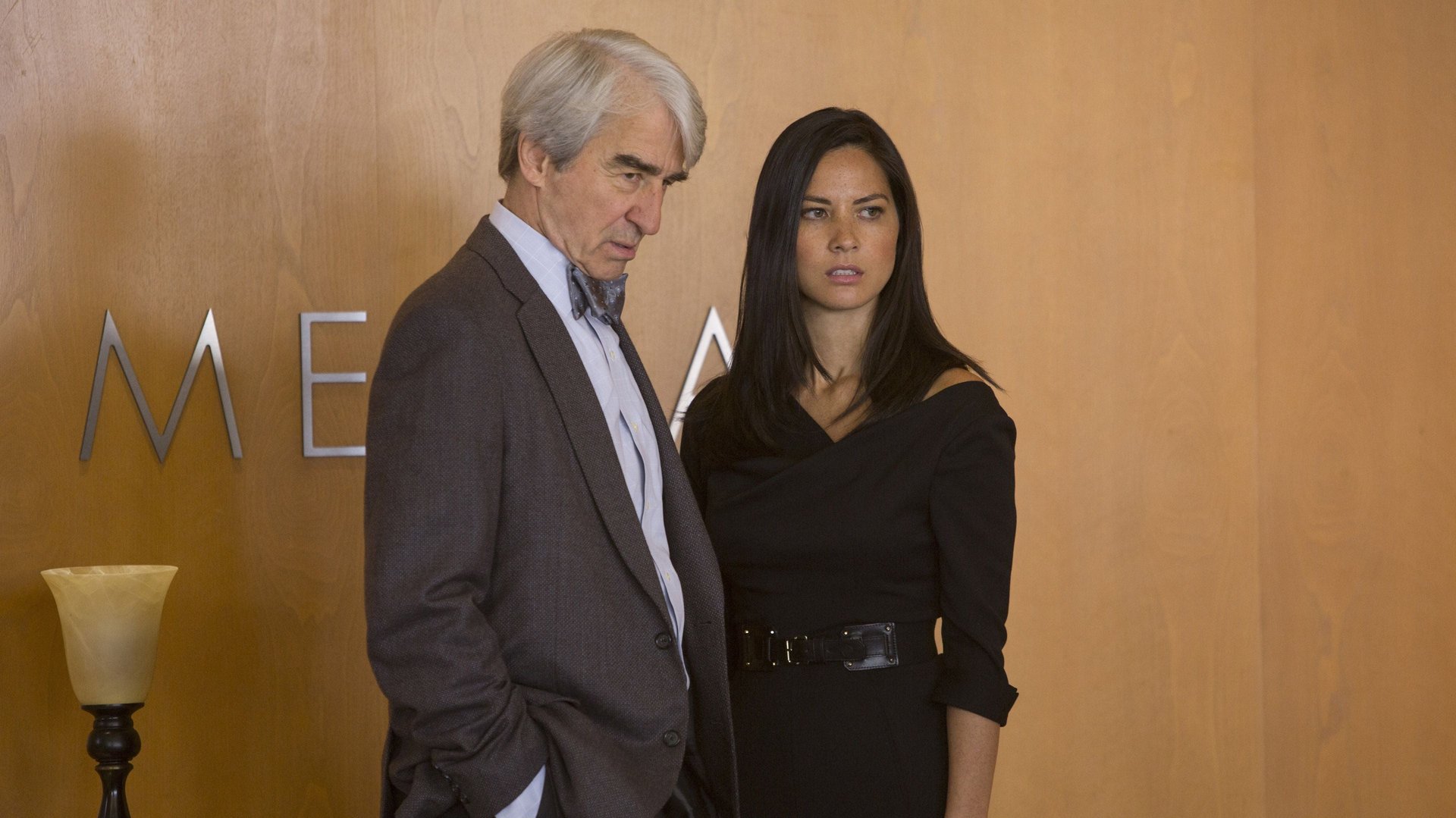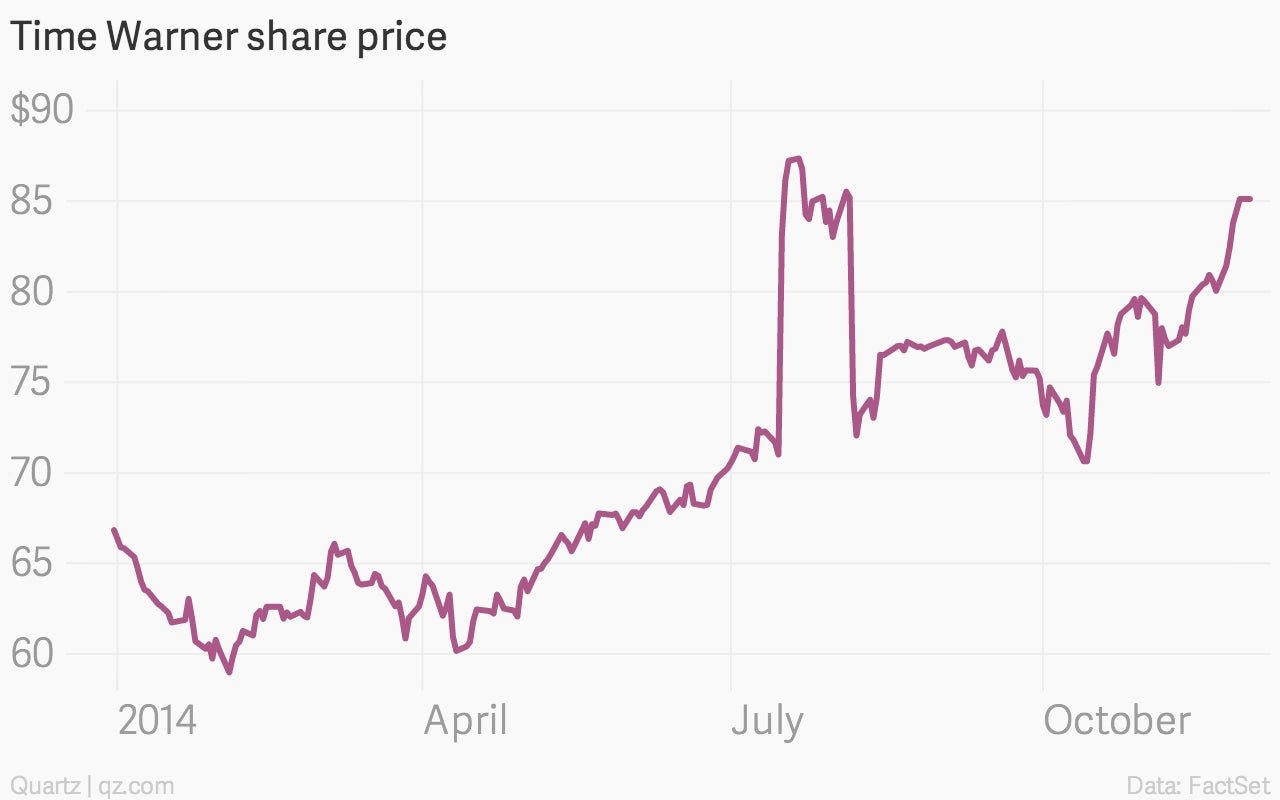When HBO attempts to dramatize a big media takeover struggle, hilarity ensues
We could start with the standard “no spoilers” disclaimer, but HBO’s The Newsroom is so hilariously bad it’s almost good—and revealing any detail of the show’s latest episode wouldn’t “spoil” anything for anyone.


We could start with the standard “no spoilers” disclaimer, but HBO’s The Newsroom is so hilariously bad it’s almost good—and revealing any detail of the show’s latest episode wouldn’t “spoil” anything for anyone.
In any case, without giving away too much, one of the storylines in the third and final season of the Aaron Sorkin series involves a takeover struggle for Atlantis World Media, the fictional conglomerate that owns ACN, the fictional cable news channel around which the show is set. (Last night’s episode included the highly implausible scenario of a network president and a business news presenter negotiating with a potential suitor on behalf of the parent company).
Who knows what twists and turns Sorkin has in store for viewers in coming episodes, but as things stand it looks like ACN is going to fall into the hands of new owners.
There are vague parallels to the real world here, only with very different outcomes. Time Warner, the parent company of HBO (and CNN, on which ACN appears to be loosely based) was subject to an unsolicited takeover offer from Rupert Murdoch’s 21st Century Fox Group earlier this summer. Time Warner CEO Jeff Bewkes rejected the approach, saying he could create more sustainable value for shareholders than the merger would achieve. And, although Time Warner shares are under a bit of pressure today, the markets seem to be coming around to that argument.

At the time of the approach, the Murdoch offer worked out to about $85 a share, or $80 billion. On Friday, Time Warner’s stock closed above the $85 mark for the first time since Murdoch walked away.
Bewkes has been aggressively cutting costs and has, crucially, outlined plans to start selling HBO Go direct to consumers over the internet, a move that would make the premium channel available to millions of broadband-only households in the US (particularly among millennials) but also threaten lucrative fees Time Warner gets from big cable, telecom and satellite pay TV distributors. Details about pricing and the structure of these packages won’t be revealed until next year, and there is still a risk the company fails to strike the appropriate balance.
But at the very least it doesn’t look like the company will be falling into the hands of new owners anytime soon. Many thought Murdoch’s decision to walk away was simply posturing: if Time Warner’s share price collapsed, he could return with another offer, and if need be, rally enough support from disgruntled shareholders to get it over the finish line.
Time Warner shares have retreated from the $85 mark this morning but they would need to fall much further for Fox to be able to return to the table without having to pay a lot more than its original offer. At the moment, barring any Sorkin style plot twists, that doesn’t look likely.